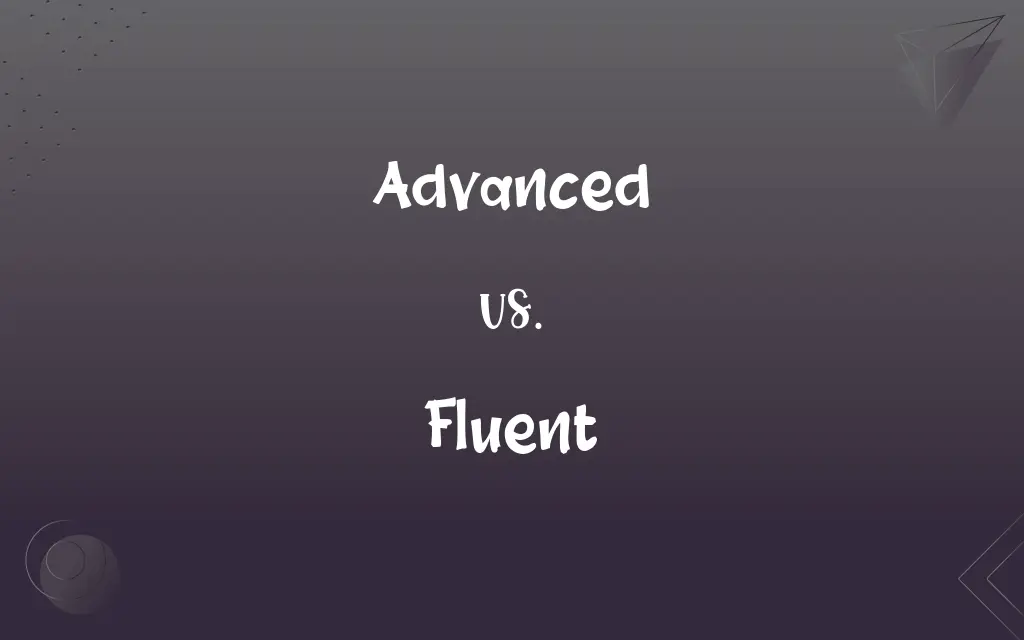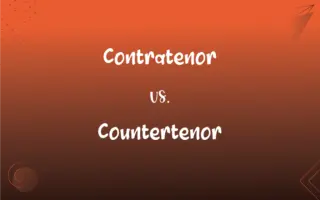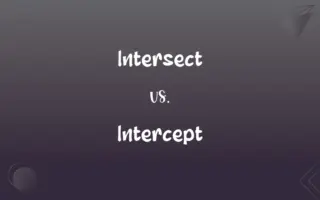Advanced vs. Fluent: What's the Difference?
Edited by Aimie Carlson || By Harlon Moss || Updated on November 6, 2023
Advanced refers to a high level of skill or development, while fluent denotes the ability to express oneself easily and articulately.

Key Differences
Advanced indicates a stage of progress or development that is beyond the basic or intermediate levels. It suggests a deeper knowledge or more sophisticated understanding. For instance, an advanced student in a language class may understand complex grammar but might not speak fluently.
Fluent is specifically related to language proficiency, referring to the smoothness and ease with which one speaks or writes a language. It implies not just knowledge but also agility and competence in using the language in real-time communication. A fluent speaker might not know all the advanced vocabulary but can converse effortlessly.
Someone may be at an advanced level in academic study or technological skills, suggesting they have moved beyond the fundamentals into more complex areas. Fluency, however, is about the seamless flow and coherence in expression, which is essential in verbal and written communication.
Advanced is often used to describe levels in education systems, technology, and skill sets. It encompasses a broad range of areas, indicating high competence. Fluent, on the other hand, is almost exclusively used in the context of languages and speaks to the ability to use language fluidly and without hesitation.
Advanced capabilities can include fluency, but they also involve a breadth and depth of understanding that allows for problem-solving and innovation. Fluency is an aspect of being advanced in language but is more focused on the practical use and the naturalness of performance in communication.
ADVERTISEMENT
Comparison Chart
Definition
High level of development or skill
Ability to express oneself easily in language
Context
Broad, includes various skills and fields
Specifically language related
Proficiency Level
Beyond intermediate, nearing expertise
Smooth and natural language use
Application
Education, technology, skills
Spoken and written communication
Implication of Mastery
Depth of knowledge or skill
Ease and flow in expression
ADVERTISEMENT
Advanced and Fluent Definitions
Advanced
Far along in course.
She was taking advanced mathematics this semester.
Fluent
Graceful in movement or function.
The dancer's movements were fluent and precise.
Advanced
Complex or sophisticated.
The lecture covered advanced theories of physics.
Fluent
Effortless expression.
His fluent storytelling captivated the audience.
Advanced
Highly developed.
The advanced robotics system was capable of learning.
Fluent
Smooth in speech.
She is fluent in three languages.
Advanced
Late stage.
The patient was suffering from advanced symptoms of the illness.
Fluent
Able to write or speak easily.
He became fluent in Spanish after living in Madrid for a year.
Advanced
Beyond the basics.
He was reading advanced texts in philosophy.
Fluent
Flowing freely.
Her fluent writing style made the novel a pleasure to read.
Advanced
Highly developed or complex.
Fluent
Able to express oneself readily and effortlessly
A fluent speaker.
Fluent in three languages.
Advanced
Being at a higher level than others
An advanced text in physics.
Fluent
Flowing effortlessly; polished
Speaks fluent Russian.
Gave a fluent performance of the sonata.
FAQs
Can you be advanced but not fluent in a language?
Yes, one might understand advanced grammar but struggle with fluid speech.
What does advanced mean?
It means at a high level of development or complexity.
Is fluency the highest level of language learning?
Fluency is a high level of language proficiency, particularly in the context of speaking and writing smoothly.
How do you achieve fluency in a language?
Through practice, immersion, and regular use of the language in various contexts.
How do you test for fluency?
By assessing the ease and accuracy of language use in real-time communication.
What does fluent mean?
It refers to the ability to express oneself easily and smoothly, especially in a language.
What makes a course advanced?
It covers complex, in-depth material and requires a strong foundation in the subject.
What is an advanced level job position?
It's a role that requires high expertise and experience in a field.
Does advanced apply to skills beyond language?
Yes, it can apply to any skill or field that requires deep understanding or development.
Can children be advanced in learning?
Yes, if they are performing above their expected educational level.
Does fluent mean bilingual?
Not always; one can be fluent in just one language.
Is fluent used for anything other than language?
Rarely, but it can describe anything done in a smooth and effortless way.
What is a fluent reader?
Someone who reads easily and smoothly, understanding and processing text quickly.
Can machines be advanced?
Yes, especially if they use innovative technology or artificial intelligence.
Is fluent speech always grammatically correct?
Not always; fluency focuses more on flow than on grammatical perfection.
Can you be advanced in one aspect of a language but not another?
Yes, for example, advanced in reading but not in speaking.
Can advanced be a level of education?
Yes, such as advanced degree programs or classes.
Can technology be described as advanced?
Yes, when it incorporates sophisticated, cutting-edge features.
Is being advanced the same as being an expert?
Not necessarily, as one can be advanced in a subject but still not at an expert level.
Does being fluent ensure effective communication?
Generally, yes, because fluency involves clear and coherent expression.
About Author
Written by
Harlon MossHarlon is a seasoned quality moderator and accomplished content writer for Difference Wiki. An alumnus of the prestigious University of California, he earned his degree in Computer Science. Leveraging his academic background, Harlon brings a meticulous and informed perspective to his work, ensuring content accuracy and excellence.
Edited by
Aimie CarlsonAimie Carlson, holding a master's degree in English literature, is a fervent English language enthusiast. She lends her writing talents to Difference Wiki, a prominent website that specializes in comparisons, offering readers insightful analyses that both captivate and inform.































































